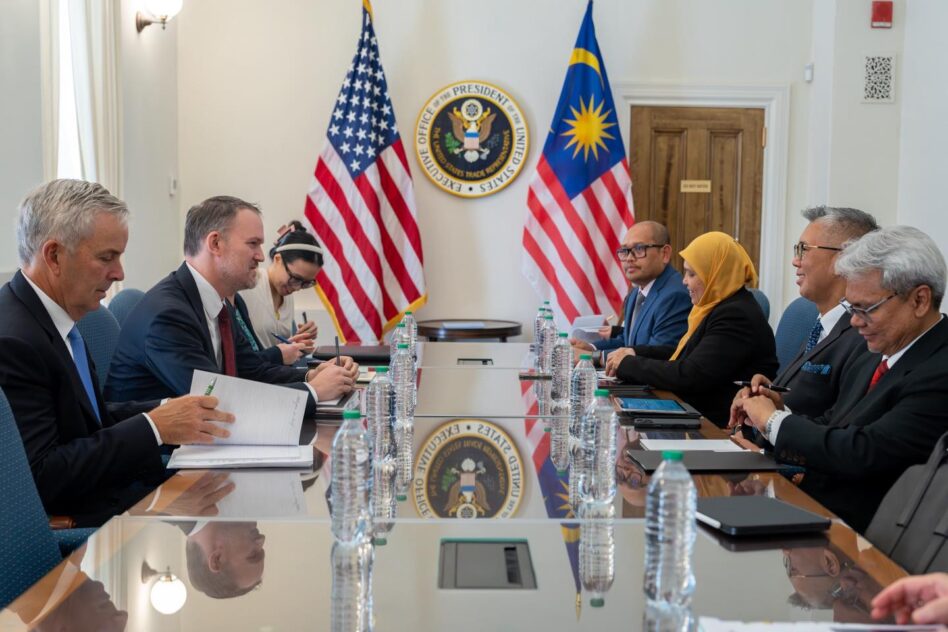By Amanda Yeo
DESPITE Malaysia having imposed the first phase of the National Recovery Plan (NRP) for four weeks (ie June 1 to 28), there is no sign of recovery as the COVID-19 daily infection figures remain above the 5,000 mark and death figures continued to increase.
In a recent analysis by Code Blue, there are more than 5,300 daily infections on average last week, with a 7.4% positive rate of undetected cases.
What is even worse is the COVID-19 death tally nationwide increased from an average of 72 deaths a day in the week of June 13-19 to 77 deaths daily in the past week from June 20-26.
Therefore, a record-high of 6,437 new COVID-19 patients and 107 deaths yesterday (June 29) poses an increasing fear that the prolonged lockdown would cause more Malaysians to fall into mental illness. And eventually, some of them would choose to commit crimes to survive or choose suicide as the way to end their miserable lives.
According to the Health Ministry director-general Tan Sri Dr Noor Hisham Abdullah, there was already an increasing number of suicide cases before the COVID-19 pandemic early last year.
In 2019, there were 609 suicide cases reported in Malaysia, followed by 631 in 2020 and 336 cases in Q1 2021.
The Q1 figure not only implies that over half of the total number of suicides of last year had occurred, but also shows almost four suicide cases reported to police every single day.
In addition, the statistics from January 1 to June 18 revealed that 89.4% (109,806 out of 122,328 calls) were related to mental health issues that required emotional and psychological support. The helplines were managed by the Ministry of Health (MOH), the Ministry of Women, Family and Community Development (MWFCD) and the Department of Islamic Development (JAKIM).

Pandemic fatigue
The factors that led to mental illness are the loss of loved ones, new COVID-19 variants, loss of jobs and income, loss of a place of dependence, ongoing financial distress and family issues arising from long isolation.
The mental illness symptom is also applicable among medical frontliners. Exhaustion from long working hours and pandemic fatigue for more than one year have caused many medical frontliners to suffer from severe burnout, according to the MOH’s recent survey among 893 health workers.
Out of the 893 respondents, over half of them reported personal-related burnout, followed by 39.1% suffered from work-related burnout while 17.4% experienced patient-related burnout.
Although the current administration has introduced an additional RM150 bil worth of Pemulih (People’s Protection and Economic Recovery Package) on June 28, the extension of the country lockdown from June 28 onwards continue to raise concerns for the low-income groups, small and medium enterprises (SMEs) and youths.
This is especially true for the hardcore poor and B40 households, who can’t afford to put food on the table. Many of them would still choose to go to the soup kitchen for food or to seek shelter during this total lockdown before receiving cash assistance under the Pemulih package from August onwards.
Although the Small and Medium Enterprises Association (SAMENTA) welcomed the six-month loan moratorium initiative for all individuals and micro-enterprises in the Pemulih package, many SMEs might continue to face trouble getting moratorium. Instead of an automatic opt-in, it is still subject to the bank’s approval.
Indeed, it is a good start for the current administration to allocate RM125 mil through Human Resource Development Corporation (HRD Corp) to implement “Place and Train” initiatives under the Janapreneur programme to school leavers and graduates in the Pemulih package.
However, as Malaysia’s job market comprises mostly semi-skilled and low-skilled jobs, aspiring university graduates and fresh graduates would still find it difficult in securing a decent job with decent pay during this health crisis.
According to the Department of Statistics Malaysia’s (DOSM) Employment Statistics Q1 2021, 62.4% are semi-skilled jobs while 13.1% are low-skilled jobs.
Although the work-from-home (WFH) concept has become common during this new normal nowadays, employees might have no idea of the appropriate timing to switch off after work. WFH could blur the line between work life and personal life, according to the clinical psychologist Lum Khay Xian of the Relate Mental Health Malaysia.
As the employees have to meet increasing demands from employers by sacrificing their leisure activities in the WFH environment, longer working hours would ultimately result in more stress, compromised quality of sleep, depression, anxiety, diabetes and heart disease.

Tackling mental health with cross-ministry collaboration
As part of the mental health advocacy effort, the Government has agreed to allocate RM15 mil to non-governmental organisations (NGOs) in assisting the Government in addressing social issues such as mental health, homelessness and other social problems in the Pemulih package.
Nevertheless, MOH should take the lead to foster cross-ministry collaboration with the Ministry of Education (MOE), Ministry of Youth and Sports (MOYS), Ministry of Human Resources (MOHR) and Ministry of Women, Family and Community Development (MoWFCD).
For instance, MOE could make mental health a part of the education curriculum, empowering teachers to create a supportive learning environment for students to cope with stress better.
MOYS could also encourage youth organisations to create a supportive and enabling environment for at-risk youths who require more emotional support to have a greater sense of belonging in the community.
On the other hand, MOHR could consider implementing a WFH policy or introducing new legislation to prevent the exploitation of worker rights.
Meanwhile, MoWFCD could expedite outreach programmes, especially to single mothers, disabled communities and the elderly.
Besides organising more awareness campaigns to create public awareness, MOH could engage the community to ask, listen and stimulate action.
For example, MOH could invite mental health practitioners to organise door-to-door visits, understanding inner needs and problems among the vulnerable communities besides providing psychological first aid-based helplines for them to express their psychosocial concerns.
Community groups with social workers could mobilise them to play a preventive role by working together with counsellors, psychiatrists and clinical psychologists – addressing early symptoms of depression through peer assistance groups.
To strengthen the media reporting of mental illness, the MOH should also set up a media guideline, promoting close collaboration with regional and national media and psychosocial experts who could educate journalists on the negative implications of mental illness and the importance of mental health. This would ensure the journalists report the correct facts of mental illness.
The White Flag Movement (#BenderaPutih) might be a good sign of advocating the #kitajagakita spirit among Malaysians, assisting those in dire need of food and essentials during such trying times.
However, in the long run, the current administration still has to continuously care about the inner needs of the rakyat, addressing the root cause of mental illness for the benefit of all Malaysians. – July 1, 2021
Amanda Yeo is Research Analyst at EMIR Research, an independent think tank focused on strategic policy recommendations based on rigorous research.
The views expressed are solely of the author and do not necessarily reflect those of Focus Malaysia.









